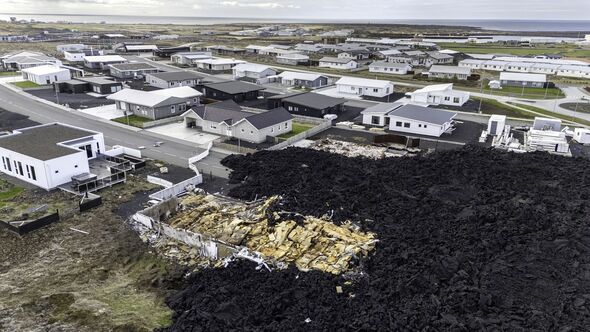Residents living in the seaside town of Grindavik on Iceland’s south west coast have been on the receiving end of repeated volcanic eruptions for months.
Since the consistent volcanic activity began last year, hundreds of residents have been evacuated from the town as their homes have been destroyed or become uninhabitable.
Locals who have had to move out of the town face an uncertain future as it is not known for how long Grindavik will continue to be under threat.
The town, which lies on the Reykjanes peninsula became perilous when the volcanoes on that peninsula became active after nearly 1,000 years of dormancy.
Speaking to the Guardian about how their life has changed and their future, Grettir Sigurjónsson said: “When you have a volcano in your back yard you really have to respect this.”
Mr Sigurjónsson explained that he came to Grindavik seven years ago to build a series of houses so he could live near his children and grandchildren. However, since an eruption in November, the family has spread out across Iceland.
Mr Sigurjónsson is currently rending with his wife in the town of Þorlákshöfn, but are not certain where they will go when they move out later this year. They are just two of thousands of residents who face an uncertain future.
Last year, when the earthquakes and eruptions first began, resident Hans Vera, 56, told the Express that what they experienced was on another level to what had gone before.
Mr Vera, originally from Belgium, said: “We’re quite experienced with them but this is a different calibre.” Speaking about why he chose to live near an active volcano, Mr Vera said: “People ask why we live near an active volcano but everyone in this area is taking a chance. To me, it’s like saying you won’t drive a car in case you crash.
“Humans only work on our life span but volcanoes work on much longer, so an eruption could have happened tomorrow or it could happen in 100 years. It’s just bad timing.”
“But as bad as it is, it’s not bad when you compare it to what’s happening in Ukraine or Gaza. People have been very kind and helpful, offering clothes, toys, food, shelter. It’s nice to know people are supporting you. It’s in the Icelandic nature to be flexible, even the plants bend for wind rather than snap. We’ll be okay in the end.”
